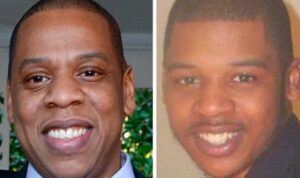Both Blake Lively and Justin Baldoni have filed lawsuits against each other and the media, detailing allegations of sexual harassment and defamation stemming from the set of their film, "It Ends With Us."
Legal Battles Emerge Between Blake Lively and Justin Baldoni Amidst Set Harassment Allegations

Legal Battles Emerge Between Blake Lively and Justin Baldoni Amidst Set Harassment Allegations
Lively and Baldoni escalate their disputes with lawsuits following allegations of misconduct during their film, "It Ends With Us."
In a dramatic turn of events, actors Blake Lively and Justin Baldoni have engaged in a contentious legal dispute, each filing lawsuits that spotlight allegations of harassment and a subsequent smear campaign linked to their recent film, It Ends With Us. Lively initiated her legal action in New York on Tuesday, alleging that Baldoni and his publicity team engaged in sexual harassment during filming and devised plans to damage her public image. Meanwhile, Baldoni filed his own suit against The New York Times, accusing the publication of colluding with Lively to tarnish his reputation while failing to present evidence that undermined her claims.
The New York Times has firmly denied Baldoni's allegations, stating that their coverage was thorough and responsibly conducted. Lively's lawsuit echoes many points from a civil rights complaint she filed in California back in December, where she sought compensatory damages for lost wages owing to the alleged harassment, along with claims for emotional distress. While she hasn't specified an exact financial figure, the implications of her lawsuit suggest significant consequences for Baldoni, who faces damaging public scrutiny.
In his counter-lawsuit against The New York Times, Baldoni seeks $250 million in damages, alleging libel, fraud, and a hurried reporting process that denied him adequate time to formulate a response. His attorneys contend that the Times misrepresented communications and manipulated quotes to present a misleading narrative about Baldoni. They argue that the article, which referenced multiple text messages, was biased and preconceived to favor Lively's account.
The fallout has been immediate for Baldoni; he's reportedly lost representation from his talent agency following the publication of the allegations. In a tit-for-tat exchange, each party's legal representatives have asserted that the claims against them are categorically false and that both actors engaged in tactics aimed at safeguarding their reputations as allegations of misconduct continue to unfold.
Lively's own claims describe a series of demands she made during a meeting to discuss what she termed "repeated sexual harassment," including stipulations to prevent inappropriate language and actions on set. She asserts that Baldoni's camp retaliated through a deliberate campaign aiming to sabotage her image via social media manipulation.
Amid the chaos, representatives for both actors and The New York Times have been contacted for further clarification on the situation. The film It Ends With Us, released in the summer, tells the story of a woman's tumultuous relationship with an abuser, a narrative drawing from author Colleen Hoover's personal experiences and previous literary works.





















